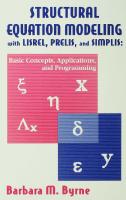Programming with C++20: Concepts, Coroutines, Ranges, and more [2 ed.] 3949323058, 9783949323058
Programming with C++20 teaches programmers with C++ experience the new features of C++20 and how to apply them. It does
134 51 577KB
English Pages 334 Year 2024
Table of contents :
Using Code Examples
About the Author
About the Book
Table of Contents
1 Concepts: Predicates for strongly typed generic code
1.1 Programming before Concepts
1.2 Start using Concepts
1.3 Application areas for Concepts
1.4 The requires-expression: The runway for Concepts
1.5 Requirement kinds in a requires-expression
1.6 Ad hoc constraints
1.7 Defining a concept
1.8 Testing requirements
1.9 Abbreviated function template with auto as a generic parameter
1.10 Using a constexpr function in a concept
1.11 Concepts and constrained auto types
1.12 The power of Concepts: requires instead of enable_if
1.13 Concepts ordering
1.14 Improved error message
1.15 Existing Concepts
2 Coroutines: Suspending functions
2.1 Regular functions and their control flow
2.2 What are Coroutines
2.3 The Elements of Coroutines in C++
2.4 Writing a byte-stream parser the old way
2.5 A byte-stream parser with Coroutines
2.6 A different strategy of the Parse generator
2.7 Using a coroutine with custom new / delete
2.8 Using a coroutine with a custom allocator
2.9 Exceptions in coroutines
3 Ranges: The next-generation STL
3.1 Motivation
3.2 The who is who of ranges
3.3 A range
3.4 A range algorithm
3.5 A view into a range
3.6 A range adaptor
3.7 The new ranges namespaces
3.8 Ranges Concepts
3.9 Views
3.10 Creating a custom range
4 Modules: The superior way of includes
4.1 Background about the need for modules
4.2 Creating modules
4.3 Applying modules to an existing code base
5 std::format: Modern & type-safe text formatting
5.1 Formatting a string before C++20
5.2 Formatting a string using [columns=fullflexible,breaklines=true,prebreak=,postbreak=,keywordstyle=]std::format
5.3 Formatting a custom type
5.4 Referring to a format argument
5.5 Using a custom buffer
5.6 Writing our own logging function
6 Three-way comparisons: Simplify your comparisons
6.1 Writing a class with equal comparison
6.2 Writing a class with ordering comparison, pre C++20
6.3 Writing a class with ordering comparison in C++20
6.4 The different comparison categories
6.5 Converting between comparison categories
6.6 New operator abilities: reverse and rewrite
6.7 The power of the default spaceship
6.8 Applying a custom sort order
6.9 Spaceship-operation interaction with existing code
7 Lambdas in C++20: New features
7.1 [=, this] as a lambda capture
7.2 Default-constructible lambdas
7.3 Captureless lambdas in unevaluated contexts
7.4 Lambdas in generic code
7.5 Pack expansions in lambda init-captures
7.6 Restricting lambdas with Concepts
8 Aggregates: Designated initializers and more
8.1 What is an aggregate
8.2 Designated initializers
8.3 Direct-initialization for aggregates
8.4 Class Template Argument Deduction for aggregates
9 Class-types as non-type template parameters
9.1 What are non-type template parameters again
9.2 The requirements for class types as non-type template parameters
9.3 Class types as non-type template parameters
9.4 Building a format function with specifier count check
10 New STL elements
10.1 bit_cast: Reinterpreting your objects
10.2 endian: Endianness detection at compile time
10.3 to_array
10.4 span: A view of continuous memory
10.5 source_location: The modern way for __FUNCTION__
10.6 contains for all associative containers
10.7 starts_with and ends_with for std::string
11 Language Updates
11.1 Range-based for-loops with initializers
11.2 New Attributes
11.3 using enums
11.4 conditional explicit
12 Doing (more) things at compile-time
12.1 The two worlds: compile- vs. run-time
12.2 is_constant_evaluated: Is this a constexpr-context?
12.3 Less restrictive constexpr-function requirements
12.4 Utilizing the new compile-time world: Sketching a car racing game
12.5 consteval: Do things guaranteed at compile-time
12.6 constinit: Initialize a non-const object at compile-time
Acronyms
Bibliography
Index
Using Code Examples
About the Author
About the Book
Table of Contents
1 Concepts: Predicates for strongly typed generic code
1.1 Programming before Concepts
1.2 Start using Concepts
1.3 Application areas for Concepts
1.4 The requires-expression: The runway for Concepts
1.5 Requirement kinds in a requires-expression
1.6 Ad hoc constraints
1.7 Defining a concept
1.8 Testing requirements
1.9 Abbreviated function template with auto as a generic parameter
1.10 Using a constexpr function in a concept
1.11 Concepts and constrained auto types
1.12 The power of Concepts: requires instead of enable_if
1.13 Concepts ordering
1.14 Improved error message
1.15 Existing Concepts
2 Coroutines: Suspending functions
2.1 Regular functions and their control flow
2.2 What are Coroutines
2.3 The Elements of Coroutines in C++
2.4 Writing a byte-stream parser the old way
2.5 A byte-stream parser with Coroutines
2.6 A different strategy of the Parse generator
2.7 Using a coroutine with custom new / delete
2.8 Using a coroutine with a custom allocator
2.9 Exceptions in coroutines
3 Ranges: The next-generation STL
3.1 Motivation
3.2 The who is who of ranges
3.3 A range
3.4 A range algorithm
3.5 A view into a range
3.6 A range adaptor
3.7 The new ranges namespaces
3.8 Ranges Concepts
3.9 Views
3.10 Creating a custom range
4 Modules: The superior way of includes
4.1 Background about the need for modules
4.2 Creating modules
4.3 Applying modules to an existing code base
5 std::format: Modern & type-safe text formatting
5.1 Formatting a string before C++20
5.2 Formatting a string using [columns=fullflexible,breaklines=true,prebreak=,postbreak=,keywordstyle=]std::format
5.3 Formatting a custom type
5.4 Referring to a format argument
5.5 Using a custom buffer
5.6 Writing our own logging function
6 Three-way comparisons: Simplify your comparisons
6.1 Writing a class with equal comparison
6.2 Writing a class with ordering comparison, pre C++20
6.3 Writing a class with ordering comparison in C++20
6.4 The different comparison categories
6.5 Converting between comparison categories
6.6 New operator abilities: reverse and rewrite
6.7 The power of the default spaceship
6.8 Applying a custom sort order
6.9 Spaceship-operation interaction with existing code
7 Lambdas in C++20: New features
7.1 [=, this] as a lambda capture
7.2 Default-constructible lambdas
7.3 Captureless lambdas in unevaluated contexts
7.4 Lambdas in generic code
7.5 Pack expansions in lambda init-captures
7.6 Restricting lambdas with Concepts
8 Aggregates: Designated initializers and more
8.1 What is an aggregate
8.2 Designated initializers
8.3 Direct-initialization for aggregates
8.4 Class Template Argument Deduction for aggregates
9 Class-types as non-type template parameters
9.1 What are non-type template parameters again
9.2 The requirements for class types as non-type template parameters
9.3 Class types as non-type template parameters
9.4 Building a format function with specifier count check
10 New STL elements
10.1 bit_cast: Reinterpreting your objects
10.2 endian: Endianness detection at compile time
10.3 to_array
10.4 span: A view of continuous memory
10.5 source_location: The modern way for __FUNCTION__
10.6 contains for all associative containers
10.7 starts_with and ends_with for std::string
11 Language Updates
11.1 Range-based for-loops with initializers
11.2 New Attributes
11.3 using enums
11.4 conditional explicit
12 Doing (more) things at compile-time
12.1 The two worlds: compile- vs. run-time
12.2 is_constant_evaluated: Is this a constexpr-context?
12.3 Less restrictive constexpr-function requirements
12.4 Utilizing the new compile-time world: Sketching a car racing game
12.5 consteval: Do things guaranteed at compile-time
12.6 constinit: Initialize a non-const object at compile-time
Acronyms
Bibliography
Index
![Programming with C++20: Concepts, Coroutines, Ranges, and more [2 ed.]
3949323058, 9783949323058](https://ebin.pub/img/200x200/programming-with-c20-concepts-coroutines-ranges-and-more-2nbsped-3949323058-9783949323058.jpg)
- Author / Uploaded
- Andreas Fertig
- Similar Topics
- Computers
- Programming: Programming Languages
- Commentary
- Publisher EPUB | Published: February 08, 2024
![Programming with C++20: Concepts, Coroutines, Ranges, and more [2 ed.]
3949323058, 9783949323058](https://ebin.pub/img/200x200/programming-with-c20-concepts-coroutines-ranges-and-more-2nbsped-3949323058-9783949323058-m-4401435.jpg)






![Programming for beginners The fundamentals:Basic introduction to programming concepts with fractals [Draft ed.]](https://ebin.pub/img/200x200/programming-for-beginners-the-fundamentalsbasic-introduction-to-programming-concepts-with-fractals-draftnbsped.jpg)

